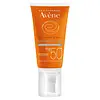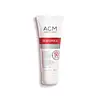What's inside
What's inside
 Key Ingredients
Key Ingredients

 Benefits
Benefits

 Concerns
Concerns

 Ingredients Side-by-side
Ingredients Side-by-side

Water
Skin ConditioningC12-15 Alkyl Benzoate
AntimicrobialDicaprylyl Carbonate
EmollientMethylene Bis-Benzotriazolyl Tetramethylbutylphenol
UV FilterDiisopropyl Adipate
EmollientSilica
AbrasiveBis-Ethylhexyloxyphenol Methoxyphenyl Triazine
Skin ConditioningDiethylhexyl Butamido Triazone
UV AbsorberAlcohol
AntimicrobialAluminum Starch Octenylsuccinate
AbsorbentButyl Methoxydibenzoylmethane
UV AbsorberC10-18 Triglycerides
EmollientDecyl Glucoside
CleansingGlyceryl Stearate
EmollientPEG-100 Stearate
Potassium Cetyl Phosphate
EmulsifyingAcrylates/C10-30 Alkyl Acrylate Crosspolymer
Emulsion StabilisingAscophyllum Nodosum Extract
Skin ConditioningBenzoic Acid
MaskingCaprylic/Capric Triglyceride
MaskingCaprylyl Glycol
EmollientDisodium EDTA
Glyceryl Behenate
EmollientGlyceryl Dibehenate
EmollientPropylene Glycol
HumectantSodium Hydroxide
BufferingStearyl Alcohol
EmollientTocopherol
AntioxidantTocopheryl Glucoside
EmollientTribehenin
EmollientXanthan Gum
EmulsifyingWater, C12-15 Alkyl Benzoate, Dicaprylyl Carbonate, Methylene Bis-Benzotriazolyl Tetramethylbutylphenol, Diisopropyl Adipate, Silica, Bis-Ethylhexyloxyphenol Methoxyphenyl Triazine, Diethylhexyl Butamido Triazone, Alcohol, Aluminum Starch Octenylsuccinate, Butyl Methoxydibenzoylmethane, C10-18 Triglycerides, Decyl Glucoside, Glyceryl Stearate, PEG-100 Stearate, Potassium Cetyl Phosphate, Acrylates/C10-30 Alkyl Acrylate Crosspolymer, Ascophyllum Nodosum Extract, Benzoic Acid, Caprylic/Capric Triglyceride, Caprylyl Glycol, Disodium EDTA, Glyceryl Behenate, Glyceryl Dibehenate, Propylene Glycol, Sodium Hydroxide, Stearyl Alcohol, Tocopherol, Tocopheryl Glucoside, Tribehenin, Xanthan Gum
Water
Skin ConditioningTalc
AbrasiveEthylhexyl Methoxycinnamate
UV AbsorberDicaprylyl Carbonate
EmollientDiethylamino Hydroxybenzoyl Hexyl Benzoate
UV FilterEthylhexyl Triazone
UV AbsorberOctocrylene
UV AbsorberNeopentyl Glycol Diheptanoate
EmollientDipropylene Glycol
HumectantCyclohexasiloxane
EmollientGlycerin
HumectantPolymethyl Methacrylate
Alcohol
AntimicrobialHydroxyethyl Acrylate/Sodium Acryloyldimethyl Taurate Copolymer
Emulsion StabilisingCoco-Glucoside
CleansingTocopherol
AntioxidantCetearyl Alcohol
EmollientPolyacrylate Crosspolymer-6
Emulsion StabilisingChlorphenesin
AntimicrobialDisodium EDTA
Phenoxyethanol
PreservativeCyclopentasiloxane
EmollientPolysorbate 60
EmulsifyingT-Butyl Alcohol
PerfumingBHT
AntioxidantSorbitan Isostearate
EmulsifyingWater, Talc, Ethylhexyl Methoxycinnamate, Dicaprylyl Carbonate, Diethylamino Hydroxybenzoyl Hexyl Benzoate, Ethylhexyl Triazone, Octocrylene, Neopentyl Glycol Diheptanoate, Dipropylene Glycol, Cyclohexasiloxane, Glycerin, Polymethyl Methacrylate, Alcohol, Hydroxyethyl Acrylate/Sodium Acryloyldimethyl Taurate Copolymer, Coco-Glucoside, Tocopherol, Cetearyl Alcohol, Polyacrylate Crosspolymer-6, Chlorphenesin, Disodium EDTA, Phenoxyethanol, Cyclopentasiloxane, Polysorbate 60, T-Butyl Alcohol, BHT, Sorbitan Isostearate
Ingredients Explained
These ingredients are found in both products.
Ingredients higher up in an ingredient list are typically present in a larger amount.
Alcohol comes in many different forms. Different types of alcohol will have different effects on skin. This ingredient is usually an astringent alcohol.
These alcohols are drying on the skin. They may strip away your skin's natural oils and even damage your skin barrier. Astringent alcohols may also irritate skin.
Other types of astringent alcohols include:
According to the National Rosacea Society based in the US, you should be mindful of products with these alcohols in the top half of ingredients.
Any type of sanitizing product will have high amounts of alcohol to help kill bacteria and viruses.
Fatty alcohols come from plant oils such as coconut oil. These can help hydrate the skin and are non-irritating. Some fatty alcohols include cetyl and stearyl alcohol.
Learn more about AlcoholDicaprylyl Carbonate comes from carbonic acid and caprylyl alcohol, a fatty alcohol. It is an emollient and gives skin a velvet feel. The sources of Dicaprylyl Carbonate may be synthetic or from animals.
As an emollient, Dicaprylyl Carbonate creates a film on the skin. This film traps moisture in, keeping your skin soft and hydrated.
Disodium EDTA plays a role in making products more stable by aiding other preservatives.
It is a chelating agent, meaning it neutralizes metal ions that may be found in a product.
Disodium EDTA is a salt of edetic acid and is found to be safe in cosmetic ingredients.
Learn more about Disodium EDTATocopherol (also known as Vitamin E) is a common antioxidant used to help protect the skin from free-radicals and strengthen the skin barrier. It's also fat soluble - this means our skin is great at absorbing it.
Vitamin E also helps keep your natural skin lipids healthy. Your lipid skin barrier naturally consists of lipids, ceramides, and fatty acids. Vitamin E offers extra protection for your skin’s lipid barrier, keeping your skin healthy and nourished.
Another benefit is a bit of UV protection. Vitamin E helps reduce the damage caused by UVB rays. (It should not replace your sunscreen). Combining it with Vitamin C can decrease sunburned cells and hyperpigmentation after UV exposure.
You might have noticed Vitamin E + C often paired together. This is because it is great at stabilizing Vitamin C. Using the two together helps increase the effectiveness of both ingredients.
There are often claims that Vitamin E can reduce/prevent scarring, but these claims haven't been confirmed by scientific research.
Learn more about TocopherolWater. It's the most common cosmetic ingredient of all. You'll usually see it at the top of ingredient lists, meaning that it makes up the largest part of the product.
So why is it so popular? Water most often acts as a solvent - this means that it helps dissolve other ingredients into the formulation.
You'll also recognize water as that liquid we all need to stay alive. If you see this, drink a glass of water. Stay hydrated!
Learn more about Water